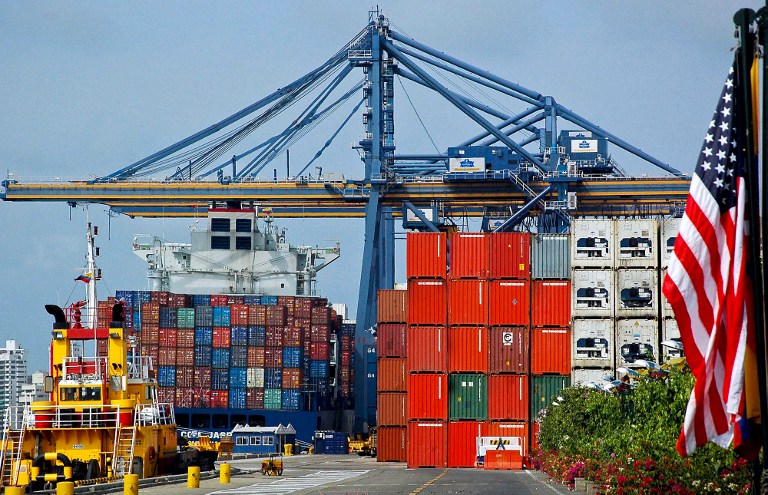US will aggressively enforce trade rules—official
WASHINGTON, United States — The Trump administration will enforce trade rules more aggressively than any previous government in its efforts to reduce the trade deficit, but does not seek a dispute, Commerce Secretary Wilbur Ross said Tuesday.
Ross also said he hopes this week to resolve delays in Congress that will allow the White House to give formal notification of the intent to renegotiate the North American Free Trade Agreement (Nafta) with Canada and Mexico, which would start the 90-day clock.
The administration has not yet decided whether to keep Nafta as a three-country deal “or to pursue two matching bilaterals,” Ross said in a speech to business leaders and diplomats at a Council of the Americas conference.
Nafta is “at best out of date and at worst did not accomplish some of its most important goals,” Ross said of the trade pact that President Donald Trump calls a disaster for the United States.
And “any agreement can be updated to reflect changes in all the various economies, and to correct unintended oversights” from the original deal, he said.
Article continues after this advertisementNafta benefited all
Canada Trade Minister Francois-Philippe Champagne defended Nafta, however, saying it benefitted all the partners and created North American production chains.
Article continues after this advertisement“Nafta has been an excellent agreement that has benefitted all sides,” amounting to $1 trillion in trade annually — four times more than before the agreement was signed — he told the conference.
And it is in the best interests of all three countries that it remain “as a trilateral agreement,” he said.
The trading relationship with the United States accounts for an estimated $1.7 billion in goods and services crossing the border each day, and $322 billion was exported from the US into Canada last year alone.
And trade with Mexico has increased to the point where the country is now Canada’s third most important trading partner, he said.
But “we must work harder to make the case for trade.”
‘Stricter enforcement’
On the administration’s broader trade strategy — frequently described as an “America First” policy — Ross said “the goal is to increase overall trade while reducing our trade deficit,” which means reducing barriers to US exports.
At the same time the Trump White House will pursue “stricter enforcement than any previous administration,” he said.
“There is little point to trade agreement that is not honored.”
But despite recent friction with Canada over dairy exports and softwood lumber imports, and with Mexico over sugar imports, “we do not seek a trade war with anyone, least of all with our fellow citizens of the Americas,” Ross said.
The US is the least protectionist of any major economy, especially compared to China and Korea, but Ross complained that any US trade action is portrayed in the media as protectionist.
US officials also will collect all trade duties levied on imports, Ross said, noting he was “horrified” to find billions of dollars in such fees were not collected from importers.
On the softwood lumber dispute, Canada’s Champagne said the US duties were “unfair and unwarranted” and Ottawa is “taking steps to defend our industry.”
Ross last month announced the US was imposing duties of up to 24 percent on the lumber use in US construction after the sides failed to reach an agreement in the 35-year-old dispute over charges Canada subsidizes the industry. CBB
